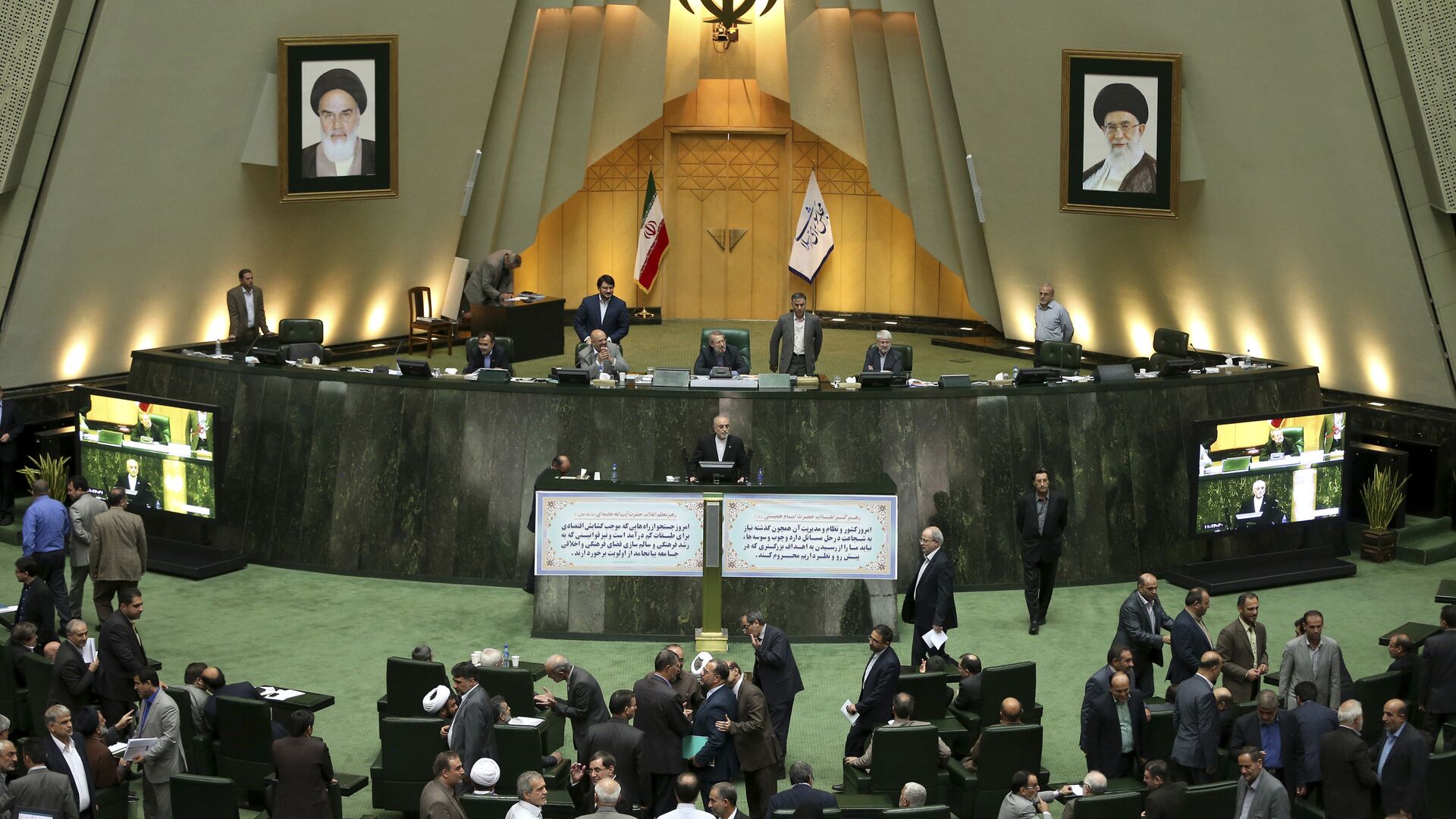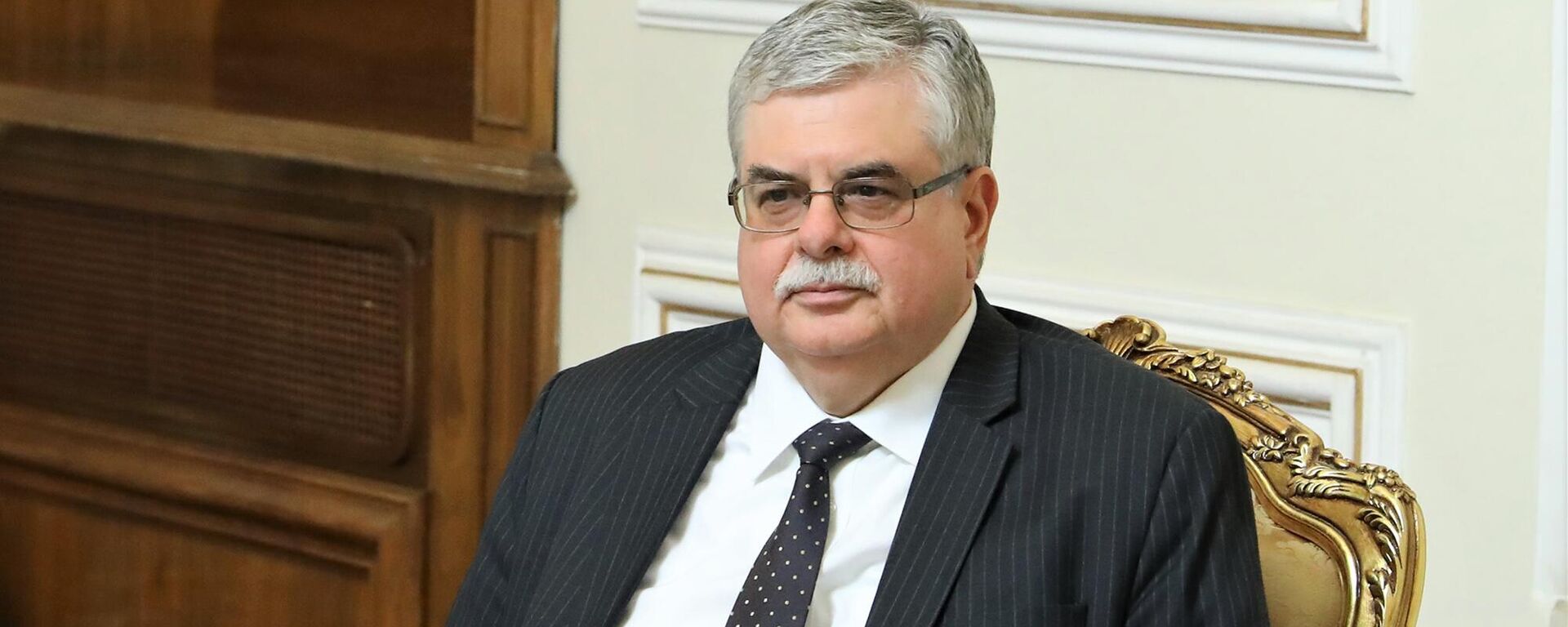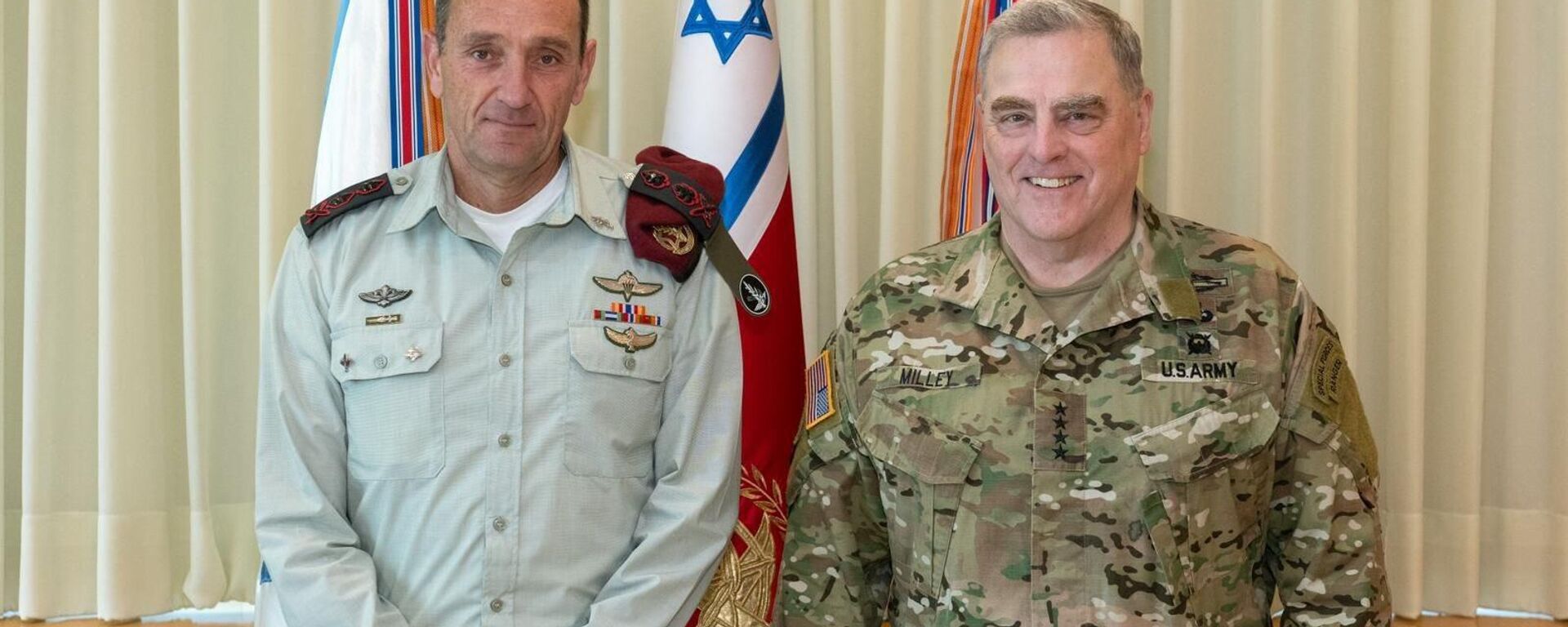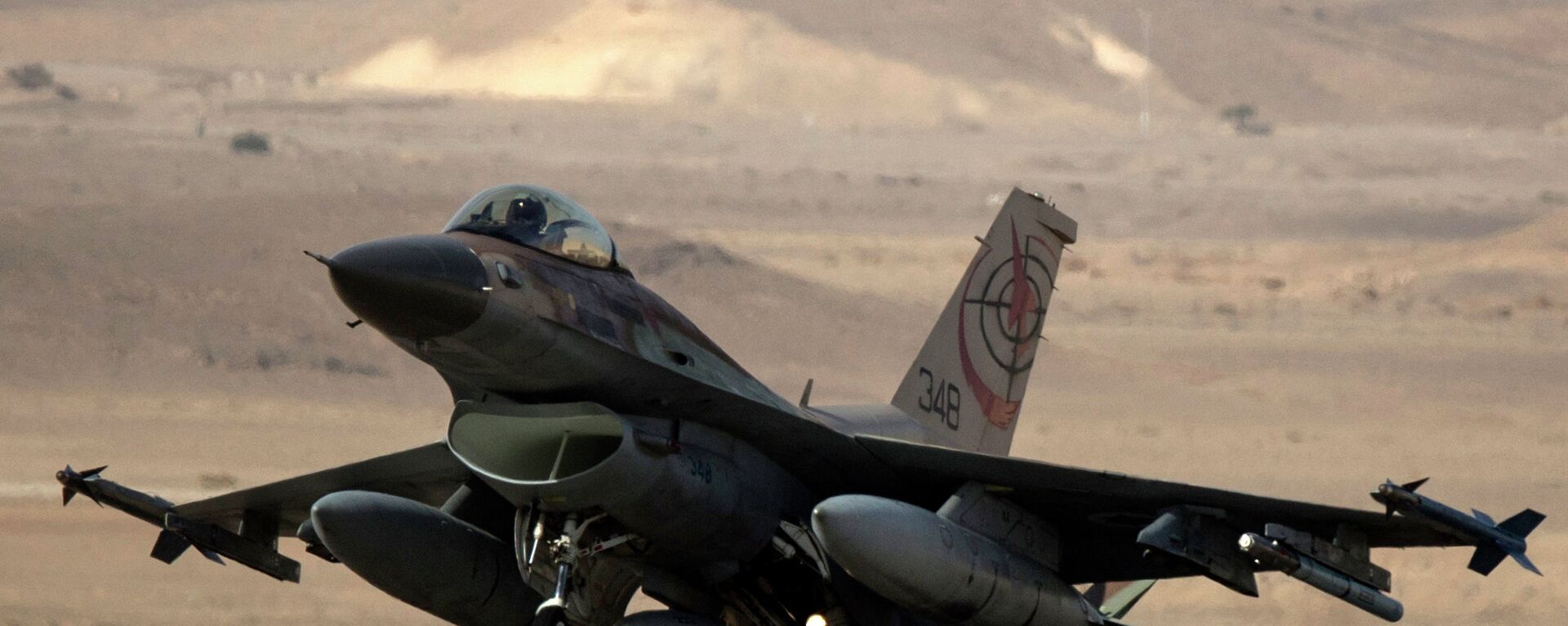https://sputnikglobe.com/20230328/irans-parliament-floats-bill-to-exit-nuclear-deal-amid-us-foot-dragging-in-talks-1108878456.html
Iran’s Parliament Floats Bill to Exit Nuclear Deal Amid US Foot-Dragging in Talks
Iran’s Parliament Floats Bill to Exit Nuclear Deal Amid US Foot-Dragging in Talks
Sputnik International
Iran and the United States resumed indirect talks on Washington’s possible return to the JCPOA nuclear agreement in the spring of 2021, but stalled after President Biden confirmed that he was ready to “kill” the agreement rather than lift a ‘Foreign Terrorist Organization’ label against Iran’s Revolutionary Guards.
2023-03-28T17:27+0000
2023-03-28T17:27+0000
2023-03-28T18:43+0000
world
iran
us
joint comprehensive plan of action (jcpoa)
nuclear
talks
nuclear talks
negotiations
https://cdn1.img.sputnikglobe.com/img/102946/52/1029465289_0:209:4000:2459_1920x0_80_0_0_5ce2d91c34f6fea1f8130f2a6e62efd6.jpg
Iran’s parliament has put forward a bill to curb the amount of time allowed for negotiations on the nuclear deal, and the country has no plans to see talks drag on forever, Iranian Foreign Minister Hossein Amir-Abdollahian said.Abdollahian further reiterated that his country remains “committed to cooperating with the International Atomic Energy Agency.The warning isn’t the first time Abdollahian and other senior Iranian officials have cautioned Washington against trying to stretch out the nuclear talks indefinitely.Late last year, the foreign minister said that although the “chance” to reach an agreement exists, “if the Westerners continue their hypocritical and interventionist behavior, we will head to another path.”Iranian Supreme Leader Ali Khamenei echoed these concerns, emphasizing in 2021 that the Islamic Republic wasn’t interested in “talks for the sake of talks,” and urging the government to keep in mind that Iran’s experience has shown that “trusting the West does not work.”Renewed talks on restoring the 2015 nuclear agreement, formally known as the Joint Comprehensive Plan of Action (JCPOA), are approaching their second anniversary. While Iranian negotiators initially hoped that the Biden administration would prove amiable to speedily restoring US participation in the agreement, talks eventually broke down, with the nub of the problem centering on US refusal to lift sanctions against the Islamic Revolutionary Guard Corps (IRGC).The US decision to ramp up sanctions pressure on Iran appears to have further strengthened Tehran’s resolve not to return to the deal unless it gets the concessions its looking for. In the past two months alone, Washington has put new restrictions on Iran’s oil industry, defense sector, and government officials.Iran is the second-most-heavily sanctioned nation in the world after Russia, with 2,260+ restrictions leveled against the country by the US and its allies. That hasn’t stopped the country from creating a broad and diversified industrial base – the largest in the Middle East, making strides in the creation of an advanced weapons and a defense electronics industry, operating a successful homegrown space program, and expanding economic and diplomatic cooperation with major countries including Russia, China, and, most recently, Saudi Arabia.The JCPOA was signed by Iran, the United States, Russia, China, France, Germany, the United Kingdom, and the European Union in October 2015. The agreement, negotiated over a two-year period, promised Tehran sanctions relief in exchange for limitations on its nuclear enrichment and stockpiling activities. The Trump administration unilaterally scrapped the agreement in 2018 and restored sanctions, with Iran ramping up its enrichment activities after the treaty’s Western European signatories failed to find a workaround to US sanctions.Despite its nuclear enrichment efforts, Iran maintains that it has no plans to pursue nuclear weapons, citing religious fatwas (religious rulings) by Supreme Leader Khamenei banning nukes and all other weapons of mass destruction. Iran's nuclear program is under strict monitoring by the International Atomic Energy Agency.
https://sputnikglobe.com/20230320/russias-iran-envoy-to-sputnik-moscow-tehran-relations-have-acquired-a-strategic-character-1108613856.html
https://sputnikglobe.com/20230303/top-israeli-pentagon-officials-agree-on-need-to-prevent-iran-from-gaining-a-nuclear-weapon-1107992834.html
https://sputnikglobe.com/20230323/israel-may-reportedly-attack-iran-if-uranium-enrichment-level-exceeds-60-1108706952.html
iran
Sputnik International
feedback@sputniknews.com
+74956456601
MIA „Rossiya Segodnya“
2023
News
en_EN
Sputnik International
feedback@sputniknews.com
+74956456601
MIA „Rossiya Segodnya“
Sputnik International
feedback@sputniknews.com
+74956456601
MIA „Rossiya Segodnya“
negotiations, talks, joint comprehensive plan of action, nuclear deal, iran, united states
negotiations, talks, joint comprehensive plan of action, nuclear deal, iran, united states
Iran’s Parliament Floats Bill to Exit Nuclear Deal Amid US Foot-Dragging in Talks
17:27 GMT 28.03.2023 (Updated: 18:43 GMT 28.03.2023) Iran and the United States resumed indirect talks on Washington’s possible return to the JCPOA nuclear agreement in the spring of 2021, but stalled after President Joe Biden confirmed that he was ready to “kill” the agreement rather than lift the “Foreign Terrorist Organization” label on Iran’s Revolutionary Guards.
Iran’s parliament has put forward a bill to curb the amount of time allowed for negotiations on the nuclear deal, and the country has no plans to see talks drag on forever, Iranian Foreign Minister Hossein Amir-Abdollahian said.
“A bill has been submitted to Iran's parliament to establish a maximum period for negotiations on the nuclear deal," the Iranian top diplomat said, speaking to regional media. “The door to dialogue will not remain open forever.”
Abdollahian further reiterated that his country remains “committed to cooperating with the International Atomic Energy Agency.
The warning isn’t the first time Abdollahian and other senior Iranian officials have cautioned Washington against trying to stretch out the nuclear talks indefinitely.
Late last year, the foreign minister
said that although the “chance” to reach an agreement exists, “if the Westerners continue their hypocritical and interventionist behavior, we will head to another path.”
Iranian Supreme Leader Ali Khamenei echoed these concerns, emphasizing in 2021 that the Islamic Republic
wasn’t interested in “talks for the sake of talks,” and urging the government to keep in mind that Iran’s experience
has shown that “trusting the West does not work.”
Renewed talks on restoring the 2015 nuclear agreement, formally known as the Joint Comprehensive Plan of Action (JCPOA), are approaching their second anniversary. While Iranian negotiators initially hoped that the Biden administration would prove amiable to speedily restoring US participation in the agreement, talks eventually broke down, with the nub of the problem centering on US refusal to lift sanctions against the Islamic Revolutionary Guard Corps (IRGC).
The US decision to ramp up sanctions pressure on Iran appears to have further strengthened Tehran’s resolve not to return to the deal unless it gets the concessions its looking for. In the past two months alone, Washington has put new restrictions on Iran’s
oil industry,
defense sector, and
government officials.
Treasury Secretary Janet Yellen
told lawmakers last week that sanctions against Iran haven’t worked. “Iran is suffering greatly economically, because of the sanctions…On the other hand, if you were to ask ‘has that forced a change in behavior?’ The answer is much less than we would, ideally, like,” she said.
Iran is the second-most-heavily sanctioned nation in the world after Russia, with
2,260+ restrictions leveled against the country by the US and its allies. That hasn’t stopped the country from creating a
broad and diversified industrial base – the largest in the Middle East, making strides in the creation of an
advanced weapons and a defense electronics industry, operating a successful homegrown
space program, and
expanding economic and diplomatic cooperation with major countries including Russia, China, and,
most recently, Saudi Arabia.
The JCPOA was signed by Iran, the United States, Russia, China, France, Germany, the United Kingdom, and the European Union in October 2015. The agreement, negotiated over a two-year period, promised Tehran sanctions relief in exchange for limitations on its nuclear enrichment and stockpiling activities. The Trump administration unilaterally scrapped the agreement in 2018 and restored sanctions, with Iran ramping up its enrichment activities after the treaty’s Western European signatories failed to find a workaround to US sanctions.
Despite its nuclear enrichment efforts, Iran maintains that it has no plans to pursue nuclear weapons, citing religious fatwas (religious rulings) by Supreme Leader Khamenei banning nukes and all other weapons of mass destruction. Iran's nuclear program is under strict monitoring by the International Atomic Energy Agency.





